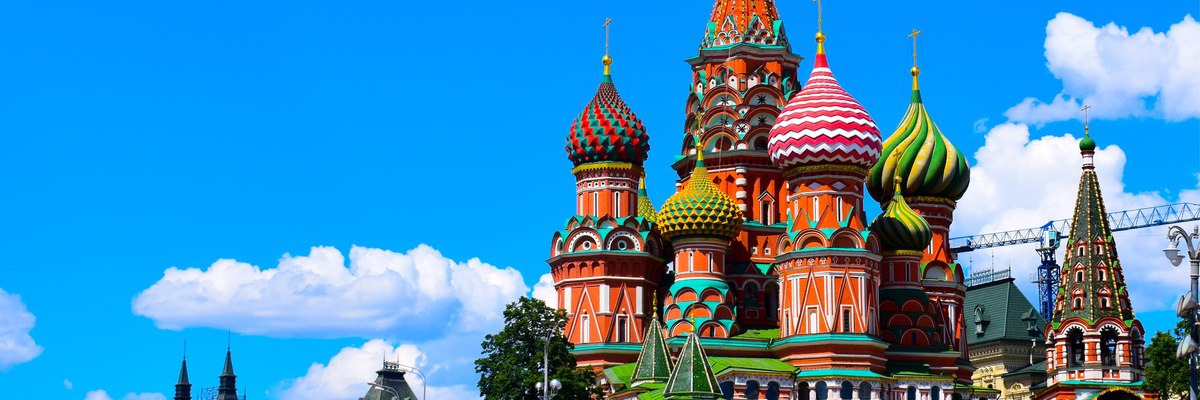We have had to wait an awfully long time for the publication of the Intelligence Committee’s report on Russian interference in British life. It’s been sitting under a pile of old Brexit campaign leaflets in Downing Street since last October. A cynic might think Boris Johnson never wanted us to read it. But now it’s out it sensationally reveals what we already knew: that Russian spooks operate here with impunity, that Vladimir Putin interfered in the Scottish referendum campaign and that Russian influence in Britain is what the report calls ‘the new normal’. Most of all it confirms that Russian oligarchs with their billions have got their feet very comfortably under the table of British society and are using this country to keep their hands firmly on their hooch. But is this any different from what all the super-rich do? And if we don’t like it, whose responsibility is it to do something about it?
Maybe it’s the word ‘oligarch’ that lies behind the worries many have had for so long. There’s something sinister about the very sound of it and those of us who lack the benefit of a classical education may be unaware that it’s a Greek term for the simple notion of ‘rule by the few’. But as applied to the Russian billionaires it may even be a misapplied term.
First, though, the history. These are men (and they are all men) who made enormous fortunes almost overnight out of the collapse of the Soviet Union. They snapped up at knock-down prices virtually bankrupt state-owned industries in steel, gas, oil and other sectors which the new Russian president, Boris Yeltsin, wanted to get off his hands. Or as others put, the oligarchs simply stole the lot, using any means available, legal or not, peaceful or not, to get their hands on the assets which, once order returned to the chaotic Russian economy, would make them stinking rich. On this account, they are much like the Mafia or any other gang of organised criminals who seize their chance and stop at nothing to make themselves wealthy.
Looked at in this way (and there’s another way I’ll come to), the Russian oligarchs couldn’t be more different from the super-rich of the western world, or at least from how they are often regarded. These are heroes of capitalism, people who came up with a good idea at the right time and, being exceptionally good businessmen, turned their idea into profitable – very profitable -- businesses. It’s one of those ironies of the news that in the very same week the intelligence committee report came out it emerged that Jeff Bezos, the guy who thought up the concept of Amazon, pocketed a little short of $14 billion in a single day. Mr Bezos has had a very good pandemic.
Similarly Bill Gates of Microsoft, Mark Zuckerberg of Facebook and Elon Musk of Tesla electric cars have made their billions out of imagining and then providing things the world now very clearly thinks it needs. Many started off as idealists rather than money-grabbers: think of Sergey Brin and Larry Page who gave us Google. And many have used their huge wealth in philanthropic ventures to make the world a better place. Bill Gates and his wife are intent on ridding the world (and especially the Third World) of as many chronic diseases such as polio, smallpox and malaria as they can. Relieving suffering is where their money goes.
Seen in this context, the Russian oligarchs who ‘stole’ Soviet assets to make themselves rich could not be more different. Or that’s what is often asserted. But there’s another way of looking at them. They weren’t really thieves at all. Rather, they were invited to steal.
Boris Yeltsin had enough on his plate with the collapse of the Soviet Union. He had to establish a new country or, rather, re-establish a very old one that went by that name before Lenin and his friends took over. He had to rebuild an economy that was in meltdown after seventy years of mis-rule. He had seen enough of how state communism worked to realise that was not the solution. If these guys could make a better fist of it, then let them try. And if their terms for doing so happened to be a bargain basement price for extremely valuable assets, so be it.
But there was more to the deal than that. To quote a phrase once used in a different context by a certain Blairite politician, Mr Yeltsin was ‘intensely relaxed about people getting filthy rich’ so long as they did his bidding and suitably recompensed him and his cronies in the process. When Vladimir Putin took over from Yeltsin he was more than happy to continue the arrangement just so long as he and his own cronies benefitted in kind.
It was a straightforward deal. The oligarchs could make as much money as they wanted but they must not cross the Kremlin. And Mr Putin hasn’t been exactly timid in dealing with those oligarchs who have other ideas. Some have languished for years in prison in Russia, some have come to an early death in leafy Surrey.
Seen in that light, the oligarchs aren’t oligarchs at all. Rather, they are part of a complex protection racket. If oligarchy means rule by the few, they are not the few. They are just the beneficiaries – so long as they are also good boys. As for their philanthropic record, I’m afraid I’ve not done the research, but for all I know they may have been the salvation of donkey sanctuaries on the Russian steppes and there’s not a homeless kitten in Krasnoyarsk .
What matters here is not so much how the super-rich come by their loot. There are any number of ways that can happen – some legal, many highly illegal. Rather, it’s how they behave once they’ve got it. And here there is one overriding objective that unites them all. Making sure they keep it.
Just consider a few of the mega-companies of modern hi-tech capitalism that have made their founders billionaires: Amazon, Facebook, Google, Apple. They all employ armies of lawyers, PR consultants and – most of all – tax advisers. Their job when push comes to shove is to make sure that others get their hands on as little of the money as they can.
They lobby governments, they make friends in high places and they create networks of patronage to protect themselves.
In short they do exactly what the intelligence committee report says Russian oligarchs have been doing in Britain for the last thirty years. The report speaks of their money being ‘invested in extending patronage and building influence across a wide sphere of the British establishment. PR firms, charities, political interests, academic and cultural institutions were all willing beneficiaries of Russian money, contributing to a ‘reputation laundering’ process’.
Or, to put it more succinctly: Londongrad as laundromat.
And once the money has been protected and sanitised – or laundered - there is another army to defend it. It is an ‘industry of enablers’ – lawyers, accountants, estate agents. Their job is to ensure – to make sure that the now “clean” money stayed firmly in the hands of its owners. Preferably rather more, in fact, than they started out with.
And of course this ‘industry of enablers’ included politicians. Back in 2008 the senior Labour figure, Peter Mandelson and the then Tory shadow chancellor, George Osborne, found themselves together as guests on the yacht of one of the more prominent oligarchs, Oleg Deripaska. It’s believed the three share a mutual love of Corfu. The report says ‘it is notable that a number of members of the House of Lords have business interests linked to Russia, or work directly for major Russian countries linked to the Russian state’ with ‘the potential for the Russian state to exploit them’. Subsequent to the publication of the report it emerged that fourteen ministers and two MPs who are actually members of the committee that published it have received political donations from Russians who are now British citizens.
It was ever thus. People with money like to keep it and people with a lot of money like to keep it even more and will play the system in order to do so. Readers of Hilary Mantel’s wonderful trilogy about Thomas Cromwell will recognise exactly the same behaviour in early Tudor Britain, five hundred hundred years ago.
So where does it leave the rest of us?
Democracies have the power to bring wealth to heel if they choose to do so. Theodore Roosevelt thought the American oil barons were getting too big for their boots and brought in anti-trust legislation to split the oil giants up. Some think the same needs doing with the likes of Amazon. Another approach is through tax. European governments and the EU itself have been trying to get their hands on more of the profits of the American giants of the digital economy, moved skilfully around different jurisdictions by clever tax lawyers. But it’s easier said than done as Margrethe Vestager, the EU’s competition commissioner, discovered earlier this month when she lost a big tax case against Apple in the European courts.
And the loot of the Russian oligarchs? Well, the report says it’s too late. You might say that just as the oligarchs were ‘invited’ to steal the assets of the Russian economy thirty years ago, so also they were ‘invited’ to make sure they could keep their hands on it by successive British governments in the years since.
The Tory government of the 1990s welcomed them ‘with open arms’ according to the report. Then the Labour government in 2008 introduced a new immigration system which gave fast access and ‘golden visas’ to foreigners able to invest a million or more quid in Britain (since increased to £2m) offering the oligarchs what the report calls ‘ideal mechanisms by which illicit finance could be recycled’. And now the Tory Party is the happy recipient of donations from rich Russians – and it’s all legal because they’re now British!
In other words, it could be said that the oligarchs have simply transferred the terms of their original deal with President Yeltsin from Moscow to London. They can keep their wealth so long as they behave themselves and grease the system with their spare cash. Unlike back home, they will find themselves neither languishing in prison nor meeting an untimely death in leafy Surrey should they step a bit out of line. And if they’re good, they might even get to play tennis with Boris.
So are we justified in pointing the finger at the oligarchs and trying to call them to account? Or should we think they behave just like all the super-rich behave? In other words, they are big fish - very big fish - who accommodate themselves to whatever water they find themselves in. And it’s for us – those of us lucky enough to be able to vote governments in and out of office – to set the standards?
Let us know what you think.







